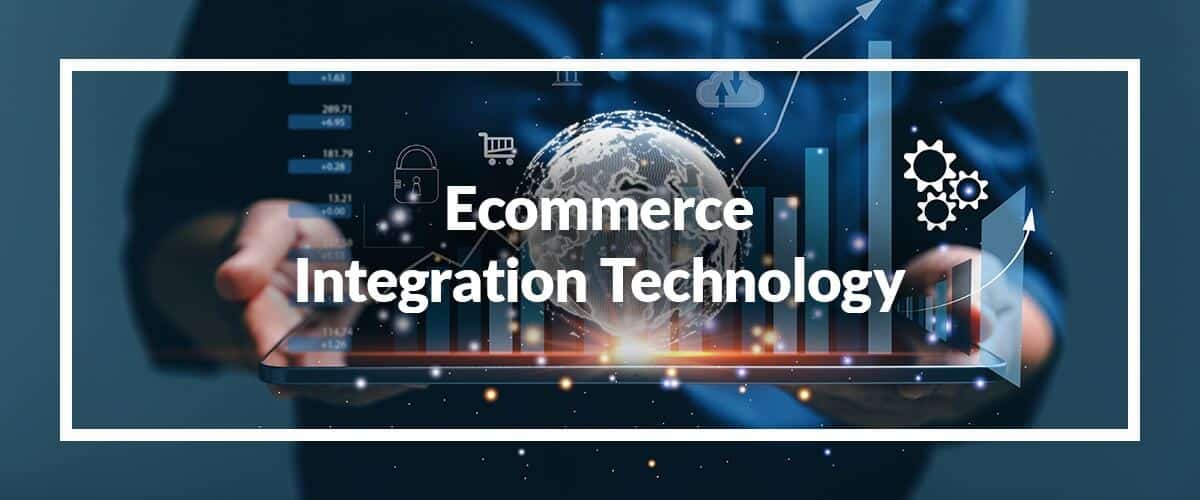Fulfillment and ecommerce integration technology has never been more important for online sellers, retailers and third-party logistics providers and their warehouse operations. Without the right connections, it is impossible to streamline B2C and DTC operations or grow competitive, high-efficiency fulfillment networks.
As with all things ecommerce, integrated warehouse solutions have continuously evolved. These days, finding a warehouse management system (WMS) with the right pre-established connections is not enough. You need a platform that can easily establish new integrations as the market and your operation changes.
Integration Orchestrator, Logiwa’s latest fulfillment connectivity platform, helps do just that.
Key Takeaways
- In the ever-evolving, fast-paced landscape of modern ecommerce, having the ability to establish new integrations is a major competitive advantage for fulfillment operations.
- Rapid, flexible integration technology allows businesses overseeing fulfillment logistics to adapt to emerging trends and changing operational needs.
- Logiwa’s Integration Orchestrator connectivity platform swiftly establishes new integrations by optimizing data mapping from third-party data sources, like EDI files and ERP providers.
- Integration Orchestrator eliminates hassle around custom integration development, ensures faster onboarding and leads to more efficient data management.
- Logiwa’s suite of tools, including Open Rest API and webhooks, offer unlimited connection options, enabling businesses to stay competitive in the dynamic ecommerce landscape.
Contents
Integrated Warehouse Solutions Need More Than Pre-Built Connections
In the ever-evolving landscape of modern ecommerce and supply chain management, the need for adaptable integration technology has become indispensable for achieving competitive fulfillment results. The rapid pace of the industry, coupled with shifting consumer demands and emerging technologies, requires a level of flexibility that a fixed number of pre-established integrations cannot always satisfy alone.
Relying solely on out-of-the-box integrations can significantly limit a businesses’ adaptability and growth potential. The ability to swiftly establish new integrations has therefore become a key capability for warehouse management systems (WMS), as it allows operations to respond effectively to emerging market trends and prioritize connections as conditions change.

Robust Ecommerce Integration with Logiwa’s Integration Orchestrator
With Logiwa WMS, your business is not limited to the prebuilt integrations within our cloud fulfillment platform. Our latest integration tool, Integration Orchestrator, can quickly connect to third-party sources- whether they are proprietary or custom-built fulfillment solutions.
Integration Orchestrator streamlines the establishment of new integrations with other applications in a flexible and timely manner. From ecommerce channels and order management systems to ERPs, accounting platforms and shipping carriers – this tool helps expedite API connections, support easy EDI file-sharing and optimize data mapping to ensure powerful integration functionality.
Integration Orchestrator helps Logiwa WMS connect directly to your FTP or AS2 server to pick up EDI files without the need to use a third-party data translator. It also supports additional connection types to pull EDI files such as Dropbox or AzureBlob, as well as EDIFACT, HL7 and XML right from your servers. In other words, Logiwa WMS makes it easier and faster than ever to establish new integrations.
Key Benefits of Logiwa’s Integration Orchestrator
- You gain access to an extensive range of new integrations and systems and are not limited to pre-existing integrations within Logiwa’s ecosystem.
- Because Logiwa has already done the work of mapping out many of today’s most popular fulfillment data needs, you can expect faster onboardings for key ERPs and applications (i.g. Microsoft Dynamics 365, Netsuite, SAP IDOC and more).
- Getting new EDI files and ERPs integrated into your WMS is much easier and bypasses the complexities often associated with hard-coded API-to-API connections.
- Time-consuming and costly development work is eliminated, meaning you do not need to hire a specialized team to get niche system integrations in place or use third-party, middleman applications to process the data.
- Data changes that arise can be handled with greater efficiency throughout your fulfillment network, leading to real-time data visibility, efficient inventory management and streamlined order processing.
The strength of Logiwa’s integration capabilities lies in its ability to facilitate system communication and data transfer at remarkable speeds, ensuring optimal time-to-value, ease of use, and customization options.
To learn more about Logiwa’s integration capabilities, check out the blog, “How Logiwa WMS Integrates with Custom Fulfillment Solutions.”
Logiwa’s Ecommerce Integration Technology
Logiwa stands at the forefront of integration technology, offering a comprehensive suite of tools that cater to the diverse needs of businesses. With pre-established integrations to leading ecommerce and fulfillment-related solutions, Logiwa helps power robust fulfillment networks from one intuitive platform.
Logiwa’s strong partnerships and pre-built connections help eliminate the complexities associated with building out custom integrations for widely used industry applications. This allows you to focus on your core operations without getting bogged down by integration challenges, especially for today’s leading solutions.
Whether it’s proprietary or custom-built, Logiwa simplifies the process of connecting all the technologies that impact your operational success, such as: your ecommerce platform, Order Management Systems (OMS), Customer Relationship Management (CRM) tools, ERP and accounting applications, shipping and carrier applications, and robotics systems.
In addition to Integration Orchestrator, Logiwa’s integration toolbox includes:
- Our Open Rest API enables seamless data exchange between stores, marketplaces, warehouses, custom websites, and existing solutions, ensuring flexibility and unlimited connection options.
- Functionality for various EDI connection types and transaction sets, including the ability to create custom EDI formats, gives you the freedom to choose the integration approach that aligns with your specific requirements.
- Logiwa’s webhooks facilitate real-time communication between systems, allowing timely notifications and updates, ensuring that businesses can stay agile and responsive in their fulfillment operations.
Logiwa’s multi-faceted approach to integrated fulfillment ensures your business feels empowered to focus on growth and efficiency by ensuring all your mission-critical systems are seamlessly connected and working in harmony.
Logiwa Provides Integrated Warehouse Solutions
By embracing adaptable integration technology, you can build the perfect solutions stack for today’s dynamic ecommerce landscape. From receiving and distributing online orders to automating carrier selection and billing processes – Logiwa ensures you have each and every integration needed to keep operational data unified and flowing harmoniously.
See how we can put all this power to work for you, schedule a no obligation demo today.
FAQs Related to Ecommerce Integration Technology
What is ecommerce integration technology, and why is it important?
Ecommerce integration technology connects online stores with other business systems, such as order management systems (OMS), warehouse management systems (WMS), ERP solutions and more. It plays a crucial role in streamlining fulfillment operations, enhancing supply chain operations and ensuring seamless transactions.
How do integrated warehouse solutions improve supply chain efficiency?
Integrated warehouse solutions combine various technologies to optimize inventory management, order fulfillment, and logistics. By automating processes and improving visibility, these solutions enhance fulfillment efficiency and reduce operational costs.
What are the key components of integrated fulfillment systems?
Integrated fulfillment systems include modules for order processing, inventory management, shipping, and customer communication. These components work together to provide a seamless and efficient fulfillment process, including timely deliveries, accurate stock operations, accurate billing and so on.
How does flexible integration technology aid ecommerce and fulfillment operations?
Flexible integration technology enhances ecommerce and fulfillment operations by enabling quick adaptation to market trends and simplifying the development of new integration connections. It ensures businesses remain flexible as they change and grow, allowing for limitless scalability without major disruptions.
Logiwa WMS pre-integrated with the leading ecommerce, marketplace, shipping and accounting platforms
Warehouse Management
Modern digital WMS powers a modern fulfillment experience






